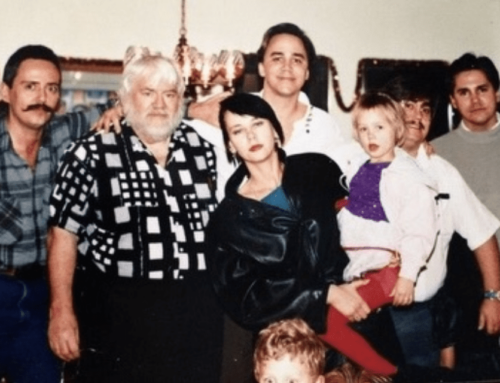
DINING OUT OR DINING IN AND THE “NEW NORMAL” – A three-part series on the restaurant industry
By Ray Rodriguez
What is really happening with your favorite restaurant, family place, fast food, or corner joint?
Surviving restaurants are finally hitting their stride after 11 months of severe operating/occupancy restrictions ended in early 2021. Unfortunately, with Covid 19 cases now on the rise, guidance on indoor activities is again being issued nationwide. This includes masking indoors, which, coupled with other increased business pressures, combine to again threaten the existence of your favorite dining spots.
To understand what the future holds for the dining public, I will be profiling three distinctive restaurant styles, over the course of three issues:
January Issue: Quick Service Restaurants (QSR) February Issue: Fine Dining
March Issue: Full-Service Family Restaurants, Themed Restaurants, and “Local Joints”
THE QUICK SERVICE INDUSTRY AKA FAST FOOD
Desert resident, Carl Karcher, is the son of the founder of Carl’s Jr., and a prolific, multi-concept franchisee in his own right. Karcher’s large stable of quick service restaurants include Carl’s Jr., Jamba Juice, and Dave’s Hot Chicken.
Karcher suggests that quick service models were severely impacted by Covid restrictions for the first 3 months, but once restrictions eased, were able to recover. Many were able to recover in part due to decreased costs. Without the cost of staffing and maintaining indoor dining, and with customers happy to pick up orders in their cars, overhead was improved while sales remained consistent.
Karcher has seen some negative effects on business, though primarily from a thinning labor pool. Extreme examples were found in other markets like Texas, where competitors aggressively approached employees while on the job, offering bonuses to jump ship. Fortunately, such efforts also identified “our best and most loyal associates who are then appropriately rewarded.” He also trusts his team to be responsive to recent inflationary costs of products with “minimal price adjustments”.
Karcher remains positive on continued growth and expansion throughout the region, specifically identifying the traditional national strategy of “developing new products to bring in new customers”. His unwavering drive for the success of his operations is evident when stating “the harder I work, the luckier I get”, just as in his observation that, “tough times bring out the worst in some, and the best in others.”
Another area desert resident and quick service giant, Dick Shaloub, is a major McDonald’s franchisee and President of the Southern California Operators, representing 650 Southern California McDonald’s, the largest such group in the country. Shaloub confidently cites technology and delivery as keys to current and future success.
“Covid inspired McDonalds to create relationships with three major delivery organizations, and in home sales exploded.” Shaloub feels the delivery market for McDonalds is here to stay, and coupled with cell phone marketing and buying opportunities, Shaloub sees a bright future. “It’s about those 5 to 40 seconds on the phone in everybody’s hand.”
Shaloub acknowledges that labor costs are spiraling as never before, but he has kept up with a changing labor market and pricing demands with a strongly built organization of professional managers and district managers able to maintain hiring standards. When asked about future growth, Shaloub confidently expressed, “We are continuing to invest and grow in Southern California, just as we will continue our strong support of local community building through non-profit efforts, and of course, Ronald McDonald House.”
Southern California regional operator, Castaneda’s Mexican Food, featuring area locations in 29 Palms and Yucca Valley experienced similar Covid success as the national chains. Cheyana Jensen, a four-year associate of the 29 Palms unit recalls, being “completely slammed,” as one of the few open area restaurants featuring take out. Even as dining rooms reopened in 2021, business “remains strong.”
Product shortage was a Covid concern for Castaneda’s, not mentioned by the Nationals, though supply chain problems echo the experience of most independent restaurants. Jensen recalls undelivered items leading to some customers being unable to enjoy their favorite dish. Though product shortage is no longer the rule, it remains an unfortunate occasional occurrence. Castaneda’s has also experienced labor shortages, with “the worst behind” them, though Jensen is also clear, “We can always use a few more good people.”
Finally, when quizzed if labor shortages ever led to adjusted days or hours of operation at Castaneda’s, 29 Palms, Jensen’s quick enthusiastic reply exudes the “can do” spirit found among the best in the hospitality industry. “We always remained open, 24 hours, no matter what, rain or shine!”
In the next edition of Joshua Tree Voice: The State of Upscale/Fine Dining
Ray Rodriguez is a lifelong desert resident and businessman with 45 years of experience in the food and beverage industry, including local and national restaurants, resort hotels, and country clubs. He is the founding co-owner of Casuelas Café, and Cork Tree, California Cuisine.











